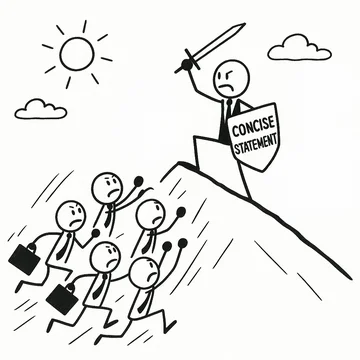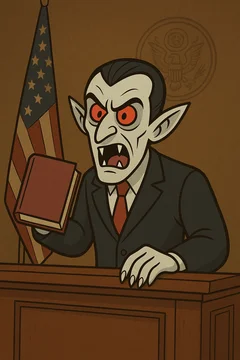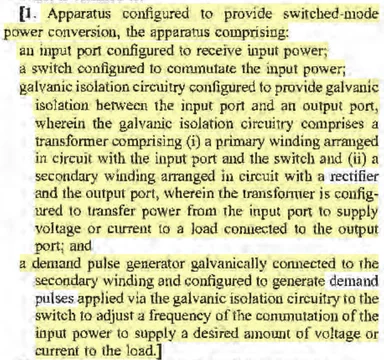The Court has developed many methods for curtailing the tendency of litigants to file and argue implausibly large numbers of SJ and Daubert motions. The first, begun long ago when mankind was yet to know fire and all creatures lived in harmony, was page limits. Later, Judge Connolly pioneered the practice of having parties rank their motions. Still further methods take seed, blossom, and wither, each day.

This last month Judge Burke debuted a new approach—"requesting that the parties select one motion each to argue at the hearing.
The parties in the case in question each filed SJ and Daubert motions under the usual page limits. After briefing was complete, Judge Burke issued an order requesting the parties select 80 pages of briefing to actually be argued at the hearing:
The Court needs the parties' help to narrow the issues as to which argument will be presented on July 2. By no later than May 20, 2024, the parties shall meet and confer and file a joint letter with the Court advising of their position (it would be ideal if this were a joint position), as to which of (or which portions of) the 5 pending motions the parties wish to present argument on at the July 2 hearing (and which the Court can simply resolve on the papers). For guidance, the Court can productively prepare for and hear argument on no more than about 80 pages of briefing. After hearing back from the parties, the Court will then advise on which motions/issues it will hear argument on during the July 2 hearing.
The Nielsen Company (US), LLC v. TVision Insights, Inc., C.A. No.22-57-CJB. D.I. 219 (D. Del. Apr. 29, 2024).
The parties ultimately did submit a joint letter selecting the 80 pages of briefing. Judge Burke then issued a follow-up order requiring further narrowing for the hearing:
[T]he Court has further reflected on the issue, in part having after having recently overseen another similar hearing regarding such motions. As a result, it has become clear to the Court that for a hearing on summary judgment and/or Daubert motions to be most fruitful and focused, it makes best sense to require the parties to each select one motion that they will offer argument on to the Court. This will allow for a detailed and focused argument regarding what the parties believe to be their most important motion, and will allow the Court to meaningfully prepare for argument. Therefore, the Court hereby ORDERS that by no later than May 28, 2024, the parties shall submit a joint letter advising the Court of the motion that each respective side selects to be argued at the July 2 hearing.
Id., D.I. 238 (D. Del. May 21, 2024).
I would not be surprised to see used more going forward in cases before Judge Burke. We'll let you know if it enters his form order.
If you enjoyed this post, consider subscribing to receive free e-mail updates about new posts.




